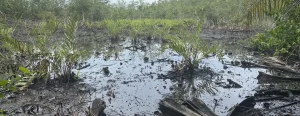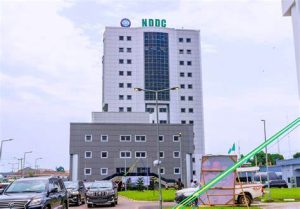
Community Efforts Capture Endangered Red Colobus on Camera
For the first time, camera traps in the Niger Delta have recorded videos of the critically endangered red colobus monkey. This achievement highlights the positive impact of local community conservation efforts in protecting this rare species.
In December 2024, camera traps set up in a community-managed conservation area in the Niger Delta captured the first-ever videos of the elusive and critically endangered Niger Delta red colobus monkeys. These primates, known scientifically as Piliocolobus epieni, are native to the swampy forests of the Niger Delta, the largest mangrove forest in Africa.
The footage, comprising 15 short videos, shows the monkeys feeding on fruits and leaves and moving through the forest canopy. This visual evidence provides researchers with valuable insights into the behaviour and ecology of a species that has been difficult to study due to its rarity and the challenging terrain of its habitat.
The Niger Delta red colobus was first identified in the 1990s, with an estimated population of about 10,000 individuals spread over approximately 1,500 square kilometres. However, decades of oil spills, logging, and habitat destruction drastically reduced their numbers and range. By 2013, surveys found the species in only four community forests, with fewer than 200 individuals remaining.
In response to this crisis, the South-West/Niger Delta Forest Project (SWNDF), Nigeria’s only Indigenous grassroots conservation organisation, collaborated with local communities to establish a community-managed conservation area in 2021. Through education and the promotion of alternative livelihoods, these efforts have not only helped protect the red colobus but also improved the well-being of local residents.
Rachel Ashegbofe Ikemeh, founder and director of SWNDF, credits the community’s dedication for the conservation success. “I think they are the superheroes in this story,” she said. Since the establishment of the conservation area, the red colobus population has shown signs of recovery, with numbers potentially doubling, although a detailed population survey is still needed.
Community members, such as youth leader Ebitimi Smart from the Indigenous Apoi community, express gratitude for the positive changes brought about by the conservation initiatives. “The community is so happy that these people came to us,” he said, highlighting the tangible benefits of education and alternative income sources provided by SWNDF.
This milestone underscores the importance of community involvement in conservation efforts and offers hope for the future of the Niger Delta red colobus monkey.
For more details, visit: First Niger Delta red colobus monkey videos reflect community conservation success.








